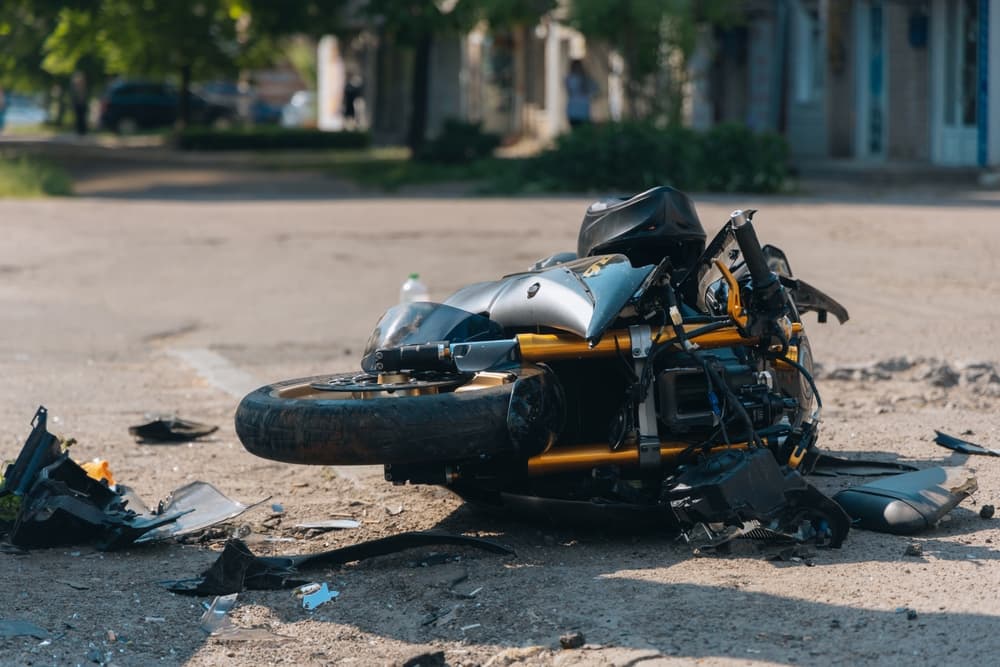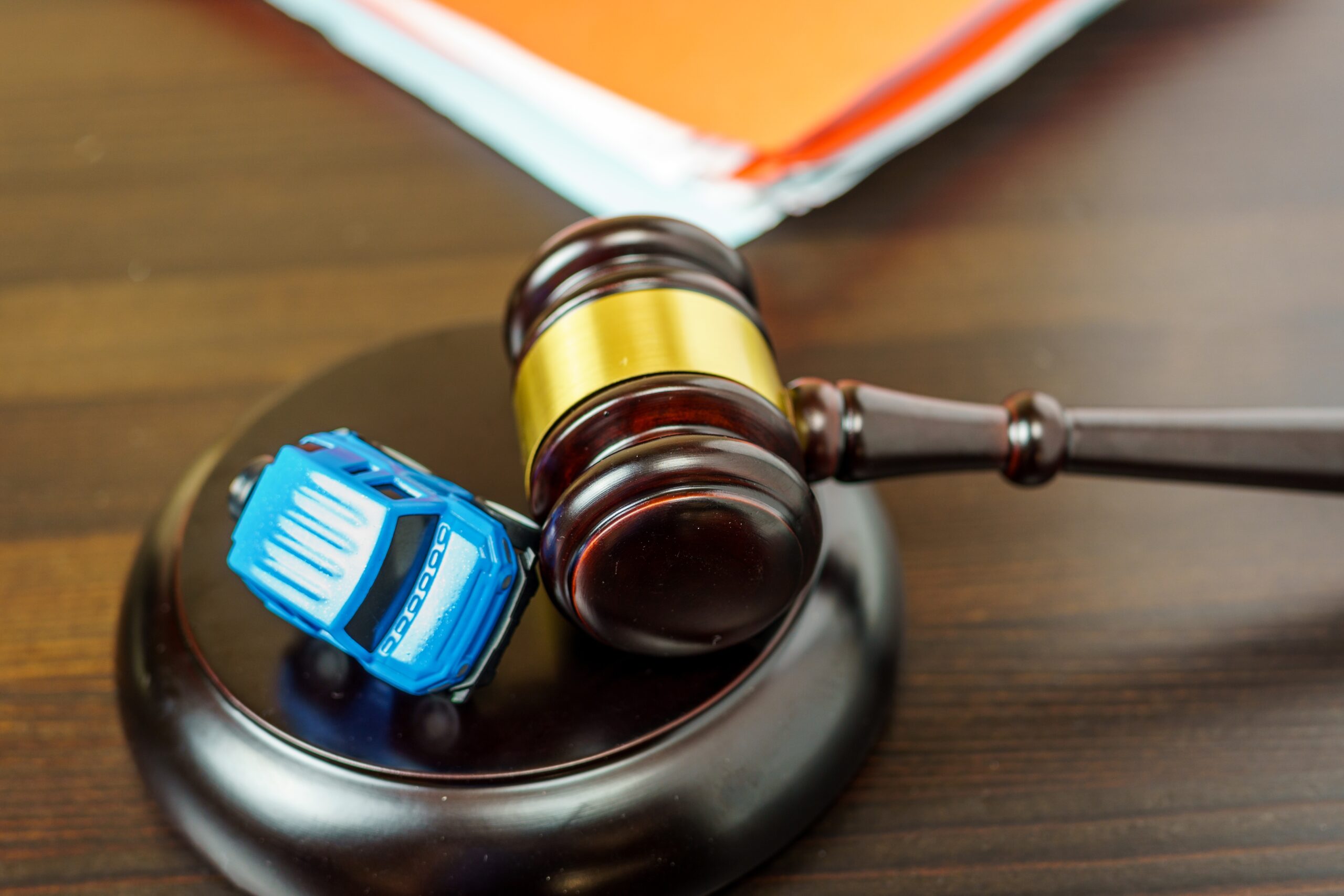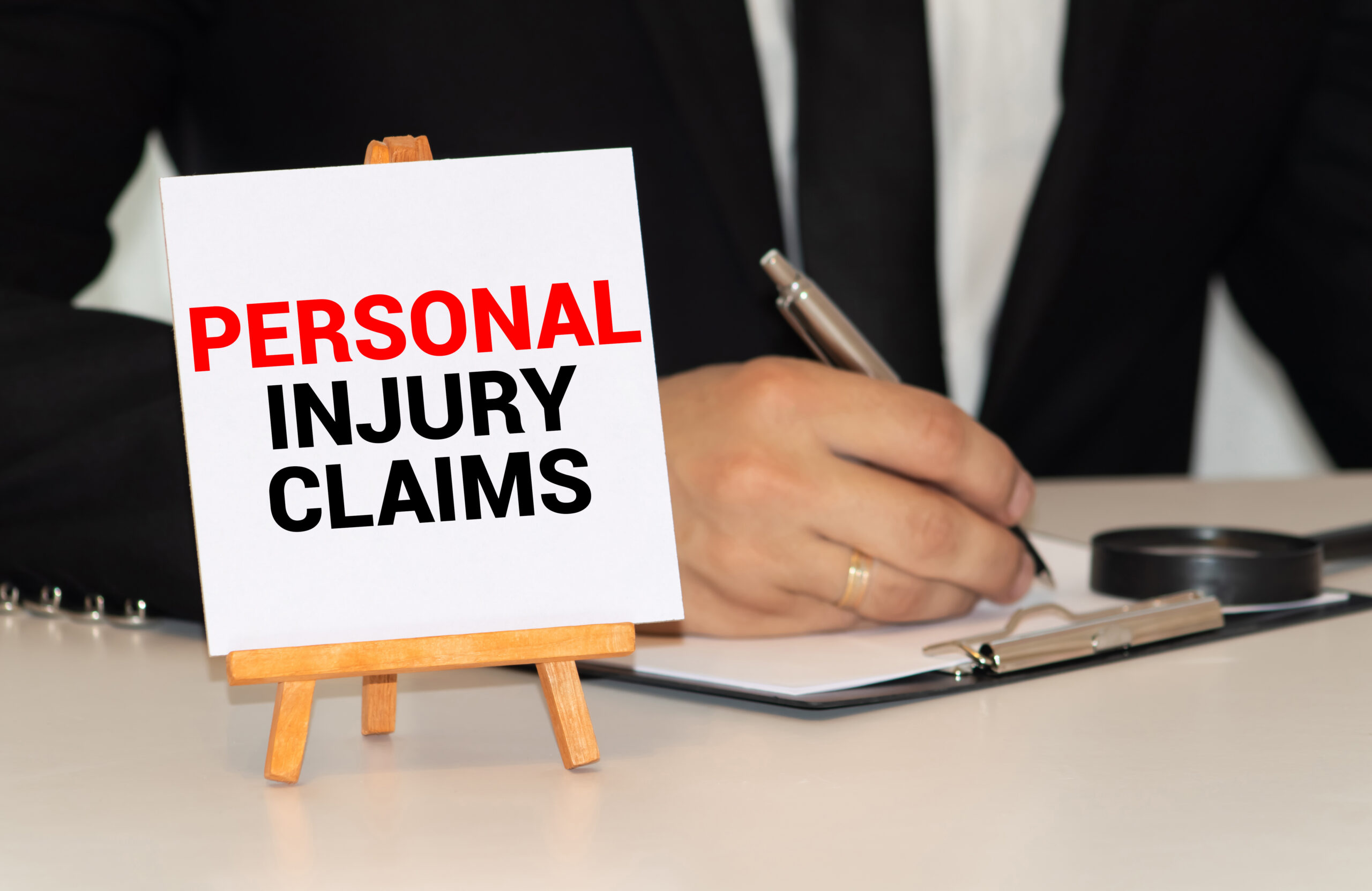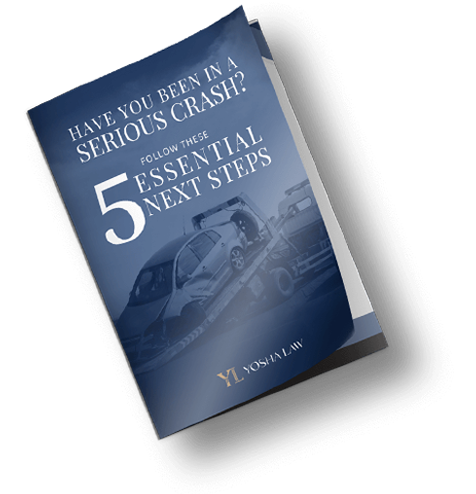
You can file a claim or lawsuit for a roadway hazard that causes a motorcycle crash in which you suffer injuries. If the hazard resulted from negligence, such as poorly maintained roads or construction zones without proper signage, you may be entitled to compensation.
A knowledgeable motorcycle accident lawyer can guide you through this process by investigating the cause of your accident, gathering evidence, and determining liability. They will handle all aspects of your case, including filing claims, negotiating with insurance companies, and representing you in court if necessary. With their skill and experience, they can ensure that you receive fair compensation for medical expenses, lost income, and other damages.
Types of Road Hazards That Bring About Motorcycle Crashes
Motorcycle accidents often result from roadway hazards that may not pose a significant risk to cars but are particularly dangerous to motorcyclists due to the nature of their vehicles. One common hazard is uneven pavement or potholes. These irregularities can cause a motorcyclist to lose balance or control, especially at higher speeds.
Construction zones, where roads are often incomplete or poorly marked, can also create dangerous situations. Gravel, loose debris, or unexpected drops in elevation are difficult for motorcyclists to navigate safely. Wet or icy conditions, oil spills, and other slick surfaces further reduce traction and increase the likelihood of a crash.
Another hazard arises from improperly maintained roads. Faded lane markings, malfunctioning traffic signals, and broken guardrails can lead to confusion or make it harder for a motorcyclist to stay in their lane or avoid a collision. Debris left in the roadway, such as tree branches, fallen cargo, or stray objects, can suddenly appear as an obstacle, forcing a motorcyclist to swerve. In addition, railroad tracks or uneven bridge joints can destabilize a motorcycle, particularly if approached at an improper angle.
The responsibility for these hazards can vary depending on their nature. Government entities, such as state or municipal departments of transportation, are often responsible for maintaining public roads. When potholes, faded lane markings, or other maintenance-related issues contribute to accidents, these agencies can be held liable if the injured accident victim can show that the agency failed to address known problems in a reasonable timeframe. Construction companies working on or near roadways may also share responsibility for ensuring their zones are well-marked and free from unnecessary dangers.
Private individuals or companies can also contribute to roadway hazards. For example, if a truck driver fails to properly secure their cargo, leading to debris in the roadway, they or their employer may be liable for any resulting accidents. Similarly, drivers who spill hazardous materials or leave their vehicles stranded on the road without proper warnings can endanger motorcyclists.
Determining who is responsible for a hazard depends on the situation but most often involves government agencies, construction companies, or private individuals who are negligent in some way.
Types of Injuries in Motorcycle Accidents Resulting from Roadway Hazards
Motorcycle crashes resulting from roadway hazards can result in serious injuries due to the lack of protection motorcyclists have compared to passengers in cars. One of the most common injuries is road rash, which occurs when a motorcyclist is thrown off their bike and skids across the pavement. This type of injury can range from scrapes to severe abrasions that damage multiple layers of skin and require extensive medical treatment, including skin grafts.
Fractures are also frequent in motorcycle accidents. The arms, legs, and ribs are particularly vulnerable during a collision because they are the areas that often absorb the impact of a fall. Broken bones can lead to long recovery times, surgeries, and, in some cases, permanent mobility problems. Limb injuries can be devastating for motorcyclists because the exposed nature of their position on the bike leaves them with little protection against crushing forces or impacts.
Head injuries are another common consequence of motorcycle accidents – even when the rider is wearing a helmet. Traumatic brain injuries (TBIs) can result from a sudden blow to the head during a crash. The force of an impact can cause concussions or more severe brain injuries that lead to memory loss, cognitive impairments, or long-term disabilities.
Spinal cord injuries are among the most severe outcomes of motorcycle accidents. A significant blow to the back or neck can damage the spinal cord, potentially causing partial or complete paralysis. These injuries often have life-altering consequences, requiring ongoing care and rehabilitation.
Internal injuries, such as damage to vital organs, can also occur during a motorcycle accident. A rider who hits a hard object, such as a guardrail or another vehicle, may suffer internal bleeding or organ damage that requires immediate medical attention. These injuries are particularly dangerous because they are not always visible right away but can be life-threatening if untreated.
Finally, motorcyclists are at high risk for injuries due to psychological trauma. Surviving a serious accident can leave lasting emotional scars, including post-traumatic stress disorder (PTSD), anxiety, or depression.
Proving That a Road Hazard Caused a Motorcycle Crash
Proving that a roadway hazard caused a motorcycle accident can be challenging, but it is essential for a victim to establish liability and seek compensation. To do so, the motorcyclist must show clear evidence that the hazard directly caused the accident and resulting injuries. This process involves gathering various forms of proof and demonstrating negligence by the responsible party.
The first step is to document the roadway hazard itself. Obtaining photographs or videos of the accident scene is critical. These visuals should capture the specific hazard, such as a pothole, uneven pavement, debris, or faded lane markings, as well as the surrounding area. Evidence should show how the hazard posed a danger to motorcyclists, especially if it was not properly marked or addressed.
Police reports can also play an important role in proving fault. When officers respond to an accident, they typically document the scene, noting contributing factors like hazardous road conditions. This report serves as an impartial record that supports the claim. Furthermore, if other accidents have occurred at the same location, these records can help establish a pattern of negligence.
Witness statements provide another important layer of evidence. Eyewitnesses, whether other drivers or bystanders, can describe how the accident occurred and confirm the presence of the roadway hazard. Their accounts may strengthen the argument that the hazard was unavoidable and directly caused the crash.
Expert analysis can also be useful in proving fault. Accident reconstruction specialists can analyze the scene, skid marks, and the damage to the motorcycle to determine how the hazard led to the accident. They can provide detailed explanations that may not be immediately apparent to others.
Finally, victims must demonstrate that the party responsible was negligent in maintaining or addressing the hazard. This evidence can involve proving that a government agency, construction company, or private individual failed to fulfill their duty to keep the road safe. For instance, evidence that a city failed to repair a known pothole or properly mark a construction zone can establish liability.
By connecting the hazard to the crash and showing negligence, victims can strengthen their case and pursue the justice and compensation they deserve.
Steps of Filing a Motorcycle Accident Claim Involving a Road Hazard
Filing a motorcycle accident claim resulting from a roadway hazard involves several key steps, and having a skilled attorney by your side can make the process smoother and increase your chances of securing compensation. After you have sought medical attention and identified the responsible hazard, the next step is to contact a lawyer who routinely handles motorcycle accident cases. A knowledgeable attorney will first review the details of your case, including the nature of the hazard and how it caused your accident, to determine if you have a valid claim.
Once you have retained a motorcycle accident lawyer, they will begin gathering all of the necessary documentation for your case. This documentation includes medical records, bills, and employment information to calculate lost earnings. They will also request police reports and any other relevant evidence, such as photographs of the accident scene or witness statements. An experienced lawyer will know how to build a strong case, ensuring that all critical information is included.
After gathering the evidence, your lawyer will file a claim with the responsible party’s insurance company or directly with the government or construction company if they are liable for the roadway hazard. This claim will outline how the hazard led to the accident and demand compensation for your injuries and damages. Your motorcycle accident attorney will handle all communication with the insurance company, making sure you do not say anything that can jeopardize your case.
If the insurance company offers a fair settlement, your lawyer will negotiate on your behalf to ensure you receive the full compensation you deserve for medical expenses, lost income, pain and suffering, and other damages. If a settlement cannot be reached, your lawyer will file a lawsuit and prepare your case for trial. They will handle all legal paperwork, meet filing deadlines, and represent you in court, where they will present evidence, cross-examine witnesses, and argue your case.
Throughout the process, a skilled motorcycle accident attorney takes care of the legal process, allowing you to focus on your medical recovery. They use their legal knowledge and skills to maximize your chances of a favorable outcome, whether through a settlement or a court result.
Compensation Available in a Motorcycle Accident Case
In a motorcycle collision case, victims may be eligible to recover compensation to cover the financial, physical, and emotional effects of the accident. These damages can be categorized into two main types: economic and non-economic.
Economic damages refer to the direct financial losses resulting from the accident. The most common compensable damage is for medical expenses. Compensation for medical expenses includes the cost of emergency treatment, hospital stays, surgeries, rehabilitation, medications, and any future medical care needed for long-term injuries. If the injuries require ongoing treatment, such as physical therapy or home care, these costs are also included.
Another economic damage is lost earnings. If you are unable to work because of your injuries, you can recover the income you would have earned during your recovery period. This compensation includes any missed workdays or a reduction in future earning potential if the injuries result in long-term disability or a diminished ability to perform your job.
In addition, compensation can be sought for property damage – specifically to your motorcycle. The costs for repairs or, if the bike is totaled, its replacement value can be recovered as part of your economic damages.
Non-economic damages, on the other hand, are more subjective and cover the intangible consequences of the accident. Pain and suffering is one of the most common categories of non-economic compensation. Pain and suffering refers to the physical and emotional distress you experience due to the accident and its aftermath. It accounts for the pain, discomfort, anxiety, and stress the injuries caused.
Another form of non-economic damage is emotional distress. If the accident caused significant trauma, leading to anxiety, depression, or PTSD, you may be entitled to compensation for this psychological harm.
In cases where the at-fault driver’s (defendant’s) behavior was particularly reckless or intentional, punitive damages may also be awarded. These damages are meant to punish the wrongdoer and deter similar behavior in the future. However, they are awarded only in cases of extreme negligence or malicious intent.
The exact compensation amount a victim receives will depend on the details of the accident and the effects on their life and overall well-being.
Talk with an Experienced Motorcycle Accident Lawyer Right Away
If you recently sustained injuries in a motorcycle crash, you should contact a knowledgeable personal injury attorney about your case right away. Your lawyer can gather the evidence necessary to prove your case and then file a claim or lawsuit on your behalf against the at-fault individual or entity. Throughout the process, they will aggressively negotiate with the insurance company on your behalf – or take your case to trial – to pursue the maximum compensation you deserve for your injuries and other losses.







